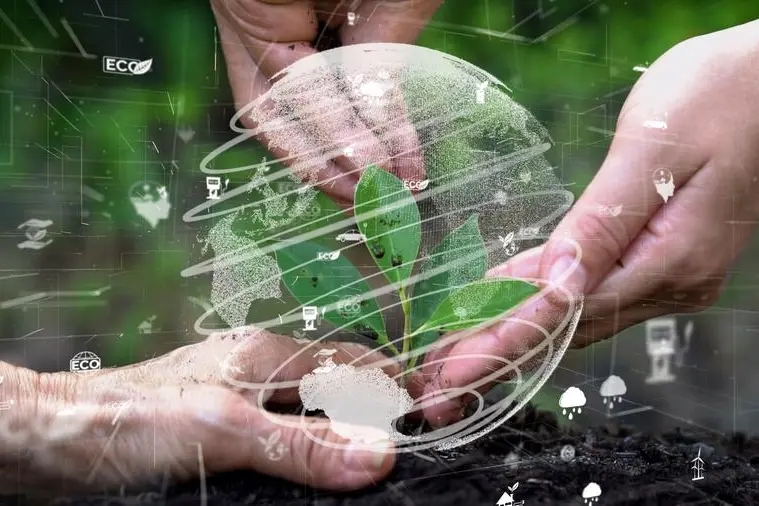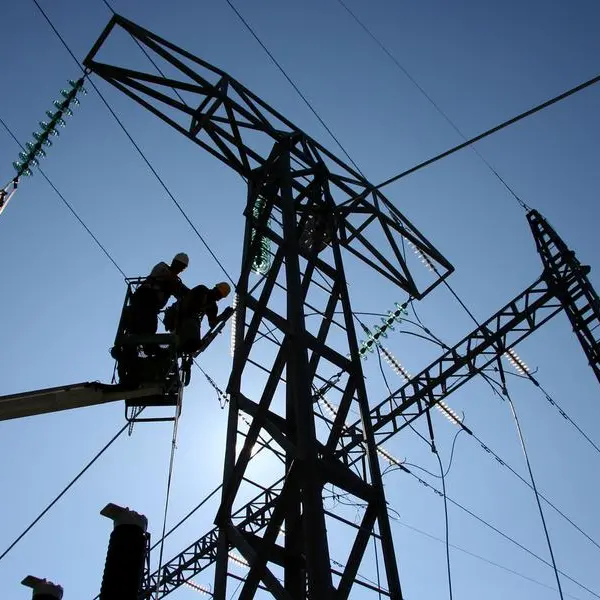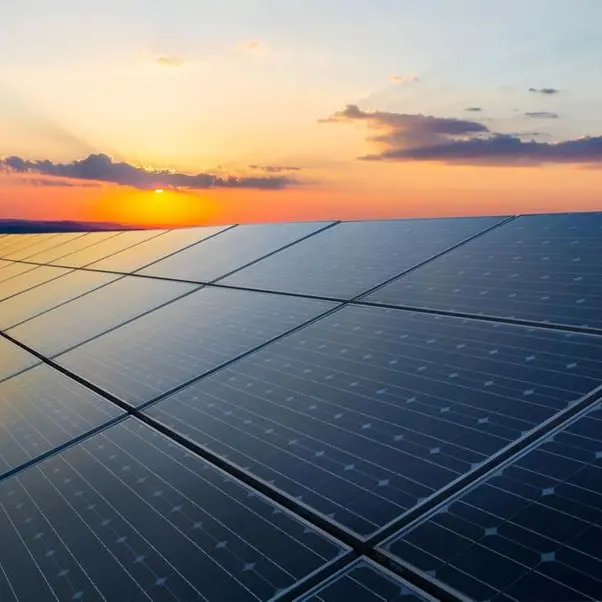PHOTO
Climate change and the growing population will strain the world’s freshwater supplies over the next 30 years, putting water available for domestic uses, drinking, and food at risk, according to a new report released on August 16 by the World Resources Institute (WRI). Increasing water stress threatens the economic growth of affected countries as well as global food security.
The report shows that by 2050, an additional billion people will live in arid regions and areas with high water stress, where at least 40% of renewable water supplies are consumed each year. Currently, two-fifths of the world’s population—3.3 billion people—live in such areas.
Five of the six most water-stressed countries are located in the Middle East and North Africa region.
Most affected regions
The report data indicated that the Middle East and North Africa (MENA) region is the most water-stressed in the world, with 83% of the population exposed to very high water stress. South Asia is the second most water-stressed region, with 74% of the population exposed to water stress.
The five countries most exposed to water stress were Bahrain, Cyprus, Kuwait, Lebanon, Oman, and Qatar. Water stress in these countries is mostly attributed to reduced supply combined with demand from domestic, agricultural, and industrial uses. Egypt, Jordan, Libya, the UAE, Palestine, Israel, Yemen, Algeria, Morocco, Saudi Arabia, Tunisia, and Iraq are among the 25 most water-stressed countries in the world.
Countries in the region use more than 80% of their renewable water supplies for irrigation, livestock, industry, and domestic needs. The report warns that the region will be at risk of running out of water if it experiences a drought, even during short-term droughts.
The report’s authors project that by 2050, an additional billion people will live under extremely high water stress, even if the world’s global temperature rises from 1.3°C to 2.4°C by 2100, which is the most optimistic scenario. For the MENA region, this means that 100% of the population will be living with very high water stress by 2050.
Grace Oluwasanya, a researcher at the United Nations University Institute for Water, Environment, and Health, based in Canada, said that there is a disparity in access to the basic human needs of drinking water and sanitation for the population between countries and between different regions. About 500 million people in Africa alone lack access to basic human needs.
Oluwasanya pointed out that the physical geographic conditions determine, to some extent, the volume of effort required for a country to achieve higher levels of water security.
The researcher explained that the concept of water security means the ability of the population to ensure sustainable access to sufficient amounts of water of acceptable quality to maintain livelihoods, well-being, and social and economic development, to ensure protection from waterborne pollution and water-related disasters, and to maintain ecosystems in a climate of peace and political stability.
How does water stress happen?
The World Resources Institute used a global hydrological model to estimate how renewable water sources, such as rivers and lakes, which are replenished through precipitation, would change under future climate change scenarios.
According to their analysis, the authors said that the Middle East and North Africa region has the highest level of water stress in the world.
Climate change is altering traditional rainfall patterns, making the region drier and reducing already scarce water supplies at a time when water is in high demand for agriculture, drinking, and industry.
When the water demand exceeds the amount available during a certain period or when poor water quality restricts its use, water stress occurs. This in turn leads to the deterioration of freshwater resources in terms of quantity, through overexploitation of aquifers and dry rivers, and quality, through water pollution or saline seepage into the aquifer. Without better water management, population growth, economic development, and climate change will exacerbate water stress, WRI’s report warns.
One of the main reasons for the deterioration of water security in the Arab region is climate change, according to Florence Gaub, former deputy director of the European Union Institute for Security Studies and a researcher interested in the effects of climate change on the Arab region.
Gaub pointed out that the climate comes to the fore as one of the natural factors threatening water security in most countries of the region, especially since a large part of its rain is classified as thunderstorms concentrated on a limited number of days of the year.
“Climate change is primarily a water problem because less rainfall will necessarily lead to a decline in agricultural production, hydroelectric power production will also decrease, and less water will be provided to industries,” Gaub said.
“Of course, the rise in sea levels is a real problem for cities located on the coast, like Alexandria and Tripoli in Libya. Conflict can break out because states or communities are fighting over water,” she added.
Deserts constitute more than 80% of the area of the Arab world, and these regions are characterized by low total amounts of annual precipitation, which do not exceed an average of 200 mm, which places them among the driest regions of the world.
The report expects that half of the agricultural areas in the Middle East and North Africa region will be affected by the impact of climate change on water. The region is also expected to lose nearly 6% of its gross domestic product by 2050 as temperatures continue to rise by 4 to 5 degrees.
Gaub indicated that the countries of the region will not be subjected to equal climate strikes, given the differences between these countries in physical geography, in addition to the fact that the countries of the region are not equal in terms of national income and economic resources.
While the researcher believes that the UAE will not suffer from the effects of climate change on water, given its ability to find costly solutions that most Arab countries cannot afford, she says that Yemen and Syria are heading straight for a nightmare.
Mitigating water stress
According to the experts Daily News Egypt spoke to, there is no definitive answer or decisive solution to the problem of water scarcity in the Arab region or anywhere else in the world.
The suggestions ranged from energy transition to improving water management and raising awareness among the population in the region about the seriousness of the problem.
Jauad Al-Kharraz, Executive Director of the Regional Center for Renewable Energy and Energy Efficiency, expects that the frequency of heat waves will increase in the Arab region in the near future due to the “El Niño” phenomenon and the effects of global warming.
Al-Kharraz believes that this problem requires governments to accelerate the energy transition towards clean energy and reduce dependence on fossil fuels.
The energy expert stressed the need to take into account the realization of the concept of urban interdependence, which means coordination between the water, energy, and food sectors to achieve energy, water, and food security at the same time, and taking into account that the use of one of these resources is not at the expense of another resource.
As for Gaub, she stressed the need for governments to seek to raise awareness among their residents of the existence of the problem of water scarcity. ” Many citizens in the region are very aware of issues like water pollution or garbage, but they don’t necessarily see them as related to climate change. The main issue is water, so it needs to be managed much better and the water recycled for proper use.
Dietrich Bartelt, a member of the Board of Experts of the International Institute for Water, Environment, and Health in Switzerland, believes that access to water security can only be achieved through an integrated approach that includes five interrelated elements: surface water, solids such as sediment carried by the river, species such as fish or microorganisms, gases and chemistry dissolved in the water, and water temperature.
Bartelt explains that the current approaches to dealing with the problem of water shortages are based on a very narrow perspective that focuses on water as liquid water only.
“This limited understanding currently stands in the way of the reasonable and equitable use of water in the river basin, is gradually leading to a loss of storage capacity on a large scale all over the world, and is a waste of the huge amounts of financial resources invested in the infrastructure of water projects, which are above all incompetent and engineeringly unnecessary.”
According to the water expert, countries should stimulate water use efficiency in agriculture, adopt integrated water resources management, and enhance water infrastructure through nature-based solutions and green infrastructure, such as restoring wetlands, mangroves, and forests that improve water quality and enhance our resilience in the future. Coping with drought, in addition to saving money spent on water treatment costs.
© 2022 Daily News Egypt. Provided by SyndiGate Media Inc. (Syndigate.info).





















